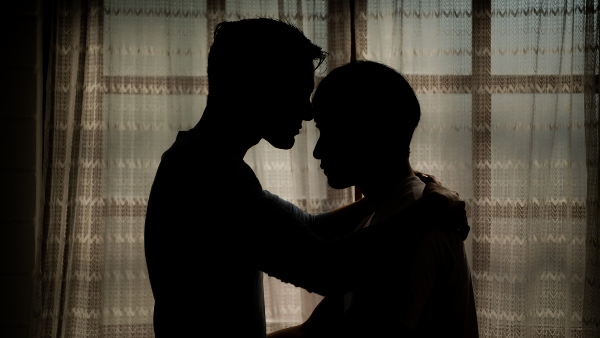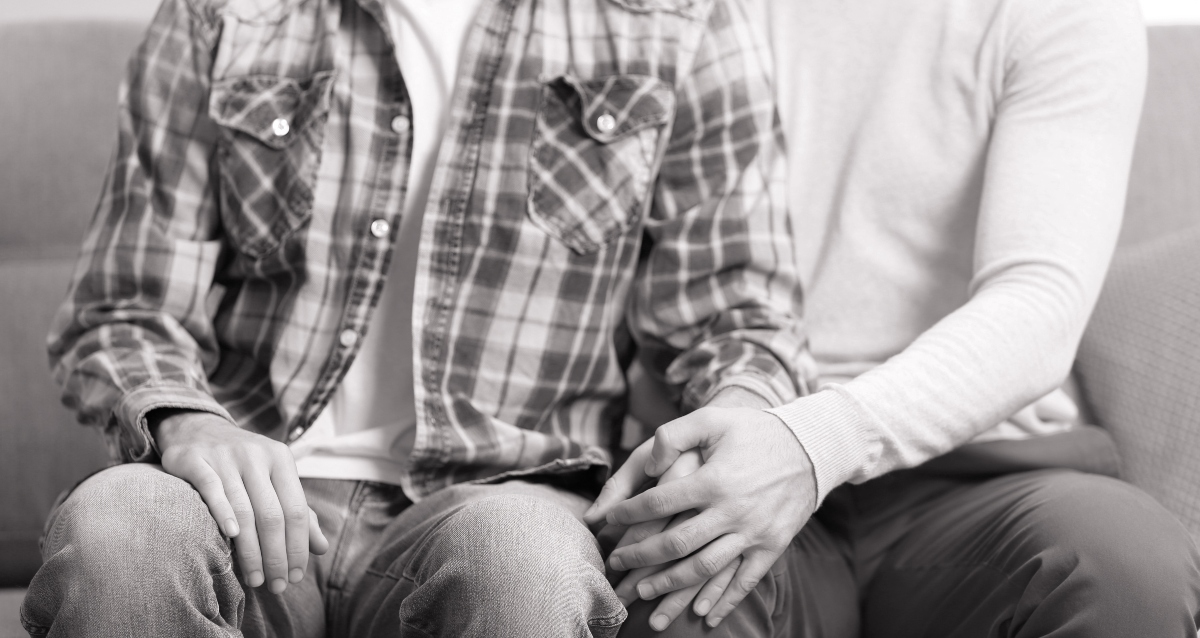Gay and bisexual (gay-bi) men face unique and overlapping health challenges shaped by societal stigma, discrimination and systemic barriers to care in our society.
These mental health challenges impact gay-bi men throughout their lives, putting them at greater risk for anxiety, depression and a variety of other conditions when compared to the broader population.
Gay-bi men more prone to mental health challenges
A 2024 study released by the Canadian Men’s Health Foundation (CMHF) found that gay-bi men are at a significantly higher risk of anxiety and depression, along with younger and racialized men, when compared to the greater straight male population.
According to CMHF research:
- 28% of gay-bi men are at risk of moderate-to-severe depression when compared to only 18% of the broader male population
- 45% of gay-bi men are at risk of moderate-to-high anxiety levels when compared to only 30% of the broader male population
Dr. Trevor Hart, a Toronto Metropolitan University professor in psychology, has studied gay men’s health for decades. He leads the University’s HOPE Centre for Gender and Sexual Minority People with a research focus on people living with or at high risk of HIV.
Dr. Hart echoes the findings of the CMHF’s research noting, “there are several life stressors unique to gay-bi men that all add up, putting them at heightened risk for anxiety, depression, body image issues and eating disorders.”
Minority stress and discrimination
Minority stress results when a minority group experiences chronic exposure to prejudice and discrimination, leading to internalized stigma. Minority stress contributes to elevated stress levels and poor mental and physical health outcomes among gay-bi men.
“From a young age, gay-bi males internalize negative messaging related to their sexuality that they pick up on the school bus, in the playground or among their own families,” says Dr. Hart. “This often leads to internalized homophobia and can result in gay-bi men concealing their identities, even subtly.”
Dr. Hart says that many gay-bi men feel the need to hide public displays of affection with their romantic partners, whereas most straight men wouldn’t think twice about holding hands with their girlfriends in public.
Events south of the border aggravate the minority stress that many LGBTQ+ people are experiencing. The Trump administration’s recent rollback of legislation protecting queer and trans people and the public debates surrounding it, negatively impact well-being and anxiety and depressive symptoms in gay-bi men of all ages.
“The politicization of queer and trans people … is only adding to the general trauma and minority stress being felt by the LGBTQ+ community,” says Dr. Hart. “Having governments treat queer and trans people with basic respect and dignity shouldn’t be seen as ‘woke’ – it should be the norm”
What does minority stress look like in gay-bi men?
Suicidal ideation and attempts
Suicide attempts are more common among gay-bi men. Some studies show they are 2-4 times more likely to attempt suicide than the general male population.
Substance use disorders
Gay-bi men are more prone to substance use disorders due to using drugs and alcohol as coping mechanisms for stress and discrimination.
Eating disorders and body image issues
Due to societal pressures and the focus on physical appearance within some gay communities, gay-bi men experience eating disorders and body image problems at higher rates than the broader male population.

Key factors impacting gay-bi men’s health
Family rejection and lack of support
Family rejection and a lack of social support can contribute to feelings of isolation, shame and depression.
“Coming out”
The process of coming out can be stressful and emotionally challenging, potentially leading to anxiety, depression and other mental health issues.
Trauma
Experiences of discrimination, violence and bullying can lead to trauma and related mental health problems, including PTSD.
Internalized homophobia
Internalized homophobia, or the internalization of negative societal attitudes towards LGBTQ+ people, can lead to low self-esteem, self-hatred and other mental health problems.
Loneliness
Studies show higher rates of loneliness among gay-bi men when compared to straight men. This loneliness can lead to depression, anxiety and suicidal thoughts.
Toxic masculinity
Societal expectations of men to be strong, unemotional and dominant can lead to gay-bi men suppressing their emotions and seeking help for mental health issues.
Barriers to mental healthcare
Lack of access to LGBTQ+ focused care and wrap-around supports makes it harder for gay-bi men to get the help they need to address overlapping health challenges.
Three ways to navigate the health challenges gay-bi men face
1 – Seek therapy and emotional support from healthcare professionals specialized in LGBTQ+ mental health.
2 – Reach out for support through LGBTQ+ community groups, events or online spaces.
3 – Build resilience and positive identity through education and peer connections with gay-bi men and straight allies.
How to be an ally
Dr. Hart says there are several simple things that straight men can do to support their gay-bi peers, friends and family members:
- Become educated and spread awareness about the mental health challenges gay-bi men face
- Treat gay-bi men as equals in every regard
- Avoid asking invasive questions when it comes to gay-bi men’s sexual preferences
- Avoid using pejorative terms or phrases like “no homo” or “that’s so gay”
- Don’t just assume that all your peers and friends identify as straight
- Steer clear of stereotyping gay-bi men
“Gay-bi men just want to be treated with respect by their straight peers; to be treated like anyone else,” says Dr. Hart. “I hear from younger patients all the time that the word ‘gay’ continues to be treated as a multi-purpose insult, creating real mental health repercussions for gay-bi men in their formative years.”
If you’re struggling with your mental health as a gay-bi man, you’re not alone. Check out these organizations’ websites for helpful resources and support:
- Gay Men’s Sexual Health Alliance (GMSHA)
- Rainbow Health Ontario
- It Gets Better Canada
- The Queer and Trans Health Collective
- The Ontario HIV Treatment Network
- Health Initiative For Men (HIM)
- LGBT YouthLine
- Parents, Friends of Lesbians and Gays (PFLAG)
- Rainbow Resource Centre






Let’s Talk!
Did you enjoy this article? Let us know in the comments.
0 Comments